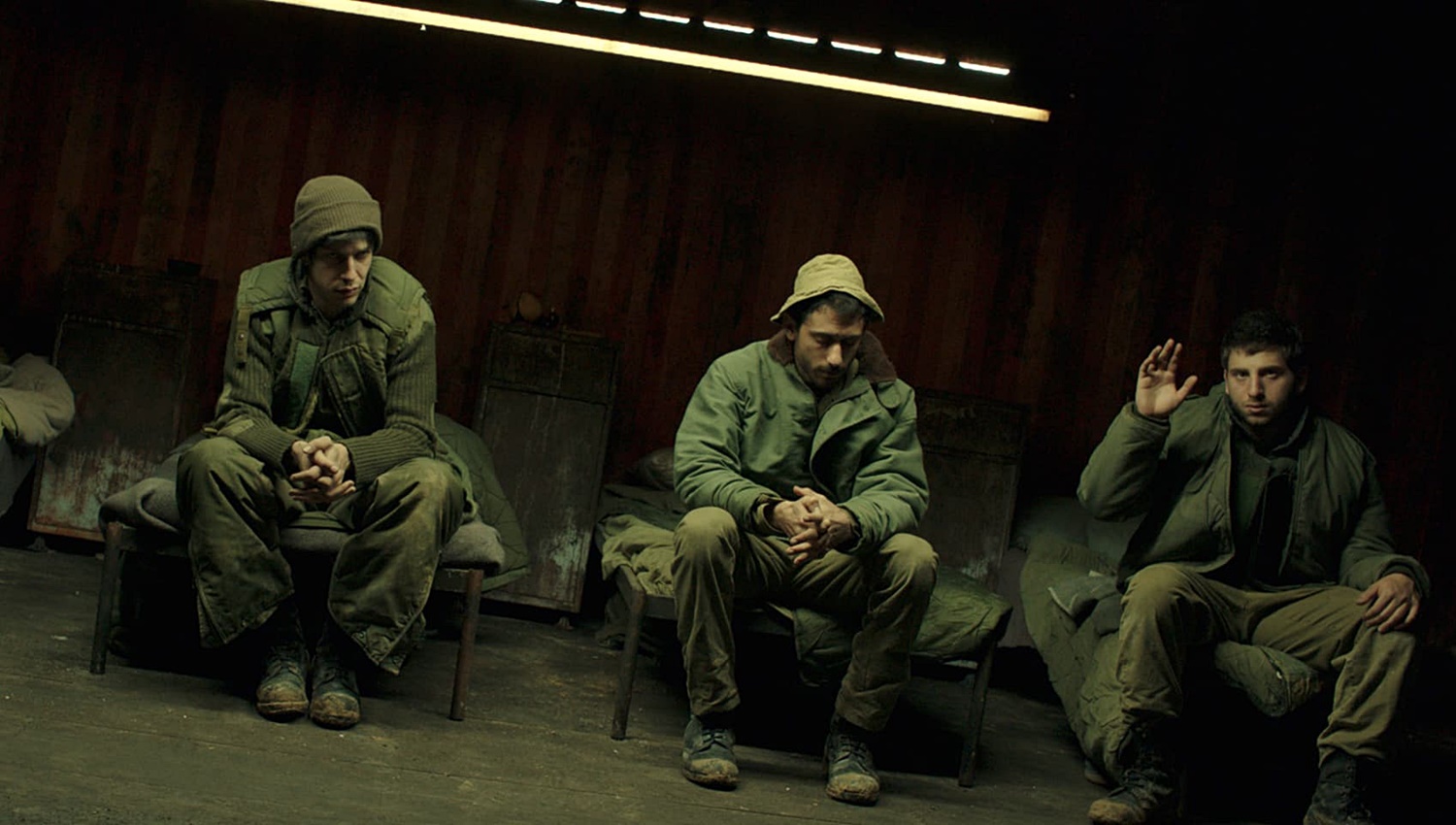
Foxtrot
Dustin Chase
Samuel Maoz’s film Foxtrot is a perplexing drama that pushes and pulls the audience into so many varying emotional states, you never know what to expect. Inspired from Maoz’s own devastation, he has created a very distinct three act feature that explores irony in its cruelest forms. Foxtrot is Israel’s submission to the 90th Academy Awards, and is thematically one of the most diverse of the films I have reviewed. Lior Ashkenazi is the most recognizable face, he can also be seen alongside Richard Gere in Norman from last year. While Foxtrot did earn the distinction of being named The National Board of Review’s best foreign film of the year, it was unfortunately not chosen as one of the Oscar nominated five.
“We regret to inform you…” Michael Feldmann (Ashkenazi) hears, just as his wife Daphna (Adler) hits the floor with a thud. “Fallen” is the word the bereavement soldiers keep using as they explain son Corporal Jonathan Feldmann (Shiray) was killed in action. Funeral arrangements are being discussed within the hour as the family begins to arrive. Meanwhile, at the northern border we find four young soldiers guarding a single road block, where both vehicles and camels pass-through. Jonathan is one of the men working in the mud and living in a sinking storage container. He spends his downtime drawing sketches from his life and detailing his father’s interesting childhood.
Maoz has a powerful message here and he delivers it gradually.
Foxtrot explores grief in all it’s different forms. The purpose for titling the movie after an American ballroom dance is explained, and each time, takes on a different meaning within the three chapters of the movie. The film is full of surprises and unexpected twists, however not all of them are narratives turns. The first segment is delivered as an organic, somber drama, detailing grief. The second is full of color and irony played for laughs, until it isn’t. I won’t say anything about the third and final segment, but each tell a complete story and they all work together to evoke something profound.
Some of the best performances in this year’s foreign submissions are here, starting with Ashkenazi and his portrayal of grief. Maoz’s use of closeup and erratic behavior in the opening segment sets a tone the audience won’t forget. Yonaton Shiray (A Tale of Love and Darkness), who was discovered by Natalie Portman in her directorial debut, is quite captivating in this performance. Whether it’s intentional, or just the way he looks, Shiray is endearing, fascinating to watch. Maybe it’s because the first time we see him he breaks out in dance, changing the bleak mood to something upbeat and vibrant. Maoz has a powerful message here and he delivers it gradually, even though at the end of the second act you understand how the irony is working and easily predict the events of segment three.
Final Thought
A creative and often shocking portrayal of irony told with visual astuteness.
